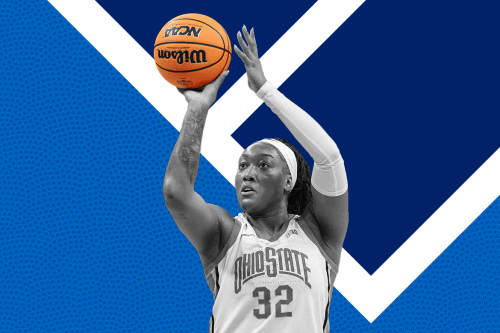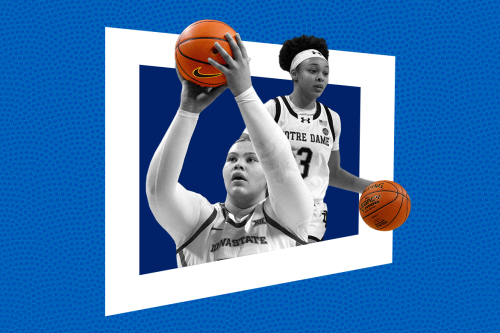The Best Sport for Brain Health Is Probably Not One You’d Guess
Turns out, the best sport for brain health isn't running, swimming, or any other popular pastime. It's orienteering.
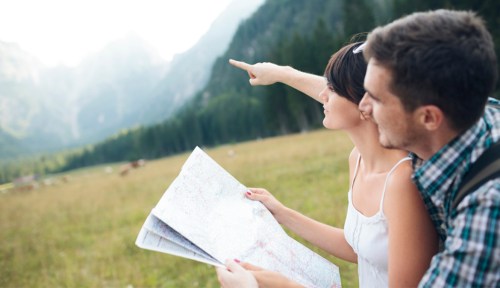
By now, science has shown that exercise is good for the brain, particularly cardio. But a new study published this month in Plus One journal has pinpointed the a surprising way to fight cognitive decline: orienteering.
Experts in This Article
Louisa Nicola is a neurophysiologist and human performance coach.
Never heard of it? That’s not entirely surprising, since its numbers pale in comparison to more popular pastimes like tennis, soccer, or swimming. Stats are hard to come by, but about 36,000 people participate in orienteering each year in England (the sport is most popular in Europe). And there have been organized orienteering events in the U.S. since the early ’70s.
The concept is quite simple: Participants are given a compass and map of an unfamiliar landscape, in which they are then tasked to find specific landmarks as quickly as possible, making it a combination of high-intensity interval training and navigation. (Kinda like TheAmazing Race.) This could be done on foot, or require the use of equipment like skis, mountain bikes, and canoes.
As the Plus One study points out, orienteering closely resembles the hunter-gatherer lifestyle our ancestors were accustomed to, and it found that those who excel at the sport have greater spatial navigation skills and memory recall.
This is likely not coincidental. “My take on this is that prehistoric humans needed to navigate through their environment to find food, shelter, and safety,” says neurophysiologist Louisa Nicola, a brain coach to elite athletes. “The ability to navigate effectively was crucial for survival and reproduction; therefore, the connection suggests that the cognitive and neural processes that support spatial navigation and memory may have evolved to work optimally with the types of physical and cognitive challenges that prehistoric humans encountered during their daily lives.”
Why having strong spatial navigation skills and memory recall is so important
A lot of sports we play today don’t have much in common with our everyday lives, much less our survival. Orienteering, on the other hand, does. Its skills, specifically spatial navigation, are highly transferrable to our day to day. “Spatial navigation refers to the ability to move around and orient oneself in a physical space,” Nicola says. “It includes understanding and remembering the layout of an environment, and being able to navigate to a specific location within it. In layman’s terms, it’s like being able to find your way around without getting lost—it’s also very important for everyday activities such as driving.”
Gold Medal Couple Tara Davis-Woodhall and Hunter Woodhall Talk Marriage, Motivation, and Their Next Chapter With Nike

Coach Kara Lawson Wants You to ‘Handle Hard Better’—and Here Are 3 Ways to Do Just That
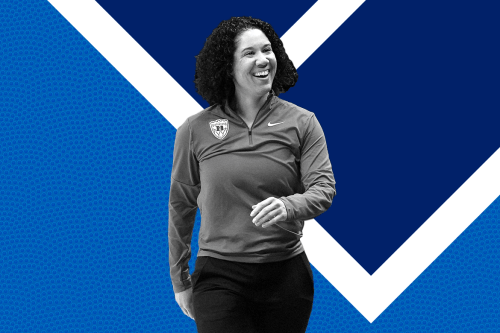
JuJu Watkins Leaves March Madness With ACL Tear—and This Knee Injury Is More Common Than You Think
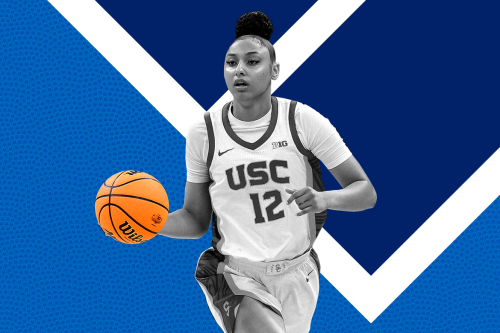
Another example of spatial navigation in action is making your way through an unfamiliar city while traveling. “You need to be able to navigate your way back to the hotel, or to see a landmark that you like, you may want to determine the best route to take, and with spatial navigation, you can find your way there,” Nicola says. “This is actually, in effect, good for the brain.”
How orienteering improves brain health
The brain has a specialized region just for navigating the spatial environment, according to Nicola. “This structure is called the hippocampus, also known as the map reader of the brain,” she says. The combination of high-intensity exercise and navigation training required for orienteering can lead to an increase in the volume of the hippocampus, which is associated with better spatial memory.
“It turns out that as we age, the volume of our hippocampus decreases, but with regular exercise—especially high-intensity interval exercise—we can get a robust release of a molecule called BDNF, a growth factor for the brain which primarily helps grow new neurons in the hippocampus,” Nicola says. And that is huge for anyone trying to support brain health, stave off cognitive decline, and balance their moods.
Even if you aren’t ready to swap your tennis matches for navigating your way through the woods, you can still benefit from incorporating orienteering’s basic principles in to your daily life—like figuring out how to get somewhere without an assist from your maps app.
—reviewed by Smita Holden, MD
Sign Up for Our Daily Newsletter
Get all the latest in wellness, trends, food, fitness, beauty, and more delivered right to your inbox.
Got it, you've been added to our email list.
